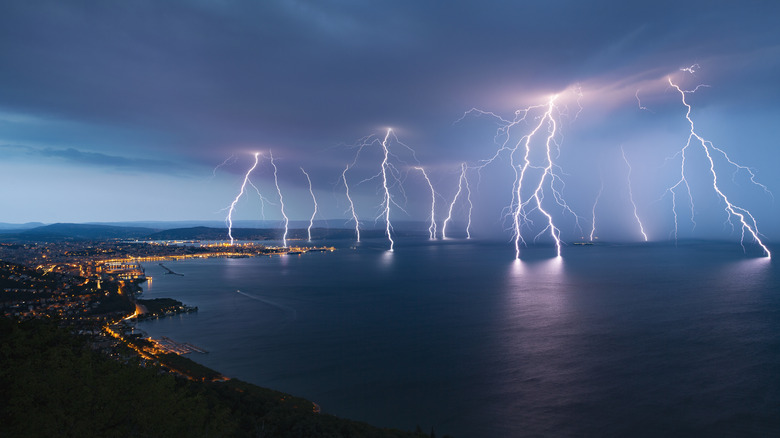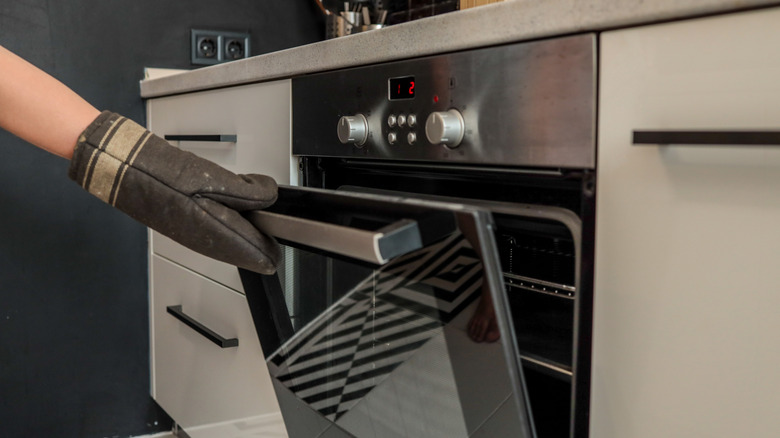Make Sure To Unplug These Kitchen Appliances Before A Big Storm
The crack of thunder and your lights flickering out can only mean one thing: you've lost power. And, if you haven't unplugged your kitchen appliances prior to the big storm, they might pay the price. Lightning strikes are notorious for causing power outages and surges during storms. When that happens, even the most well-made appliances can receive damage due to the sudden surge of electricity, to say nothing of less-than-stellar appliance brands.
If you have forewarning, which of these should you protect first? When there's an electrical storm coming your way, first unplug your small appliances, such as toasters, microwave ovens, air fryers, or blenders. Anything larger likely does not need to be unplugged, since big major appliances are better suited to sudden surges of electricity that can take out smaller ones. You may be tempted to plug your appliances into surge protectors to safeguard them in the event of a storm, but think again. Surge protectors aren't designed for kitchen appliances and will not provide sufficient protection. In the case of some devices, like space heaters, surge protectors can cause overheating and pose a fire hazard.
As for timing, ideally, you should unplug your appliances before the skies even darken. Since electricity can travel through your appliances and shock you if you touch them, don't handle any appliances or cords while a thunderstorm is in progress. Lastly, after the power goes out and comes back on, the electrical grid is possibly in a more delicate state, so give it a few minutes before you plug anything back in.
What to unplug if you're evacuating
If you're staring down the barrel of a hurricane or flood and have to evacuate, what to unplug becomes a different story. In that case, there's greater potential for stronger and more frequent electrical surges, so it's better to unplug every electrical device in the house, including big appliances like your oven, dishwasher, washer, dryer, and television. This will help to prevent them both from being damaged and becoming a fire hazard during severe weather.
The only thing you should not unplug is your refrigerator or freezer, to keep the food inside at safe temps. Even without power, a modern fridge and freezer in good condition will keep food fresh for about 24 to 48 hours, depending on how full it is and how you stored the food in the fridge. Once it's safe to return home, if the power is still out, monitor the temperature of your fridge and freezer to ensure it stays at safe levels (below 40 degrees Fahrenheit and below 0 degrees, respectively). If you do have power, carefully inspect all your food to ensure it's still safe to eat.
When the dust settles and power is restored, don't plug anything in yet, especially if there was a flood or you have any visible damage. Your home's electrical systems may have sustained damage, so plugging in devices could be dangerous. Get an inspection by a licensed electrician as soon as possible.

